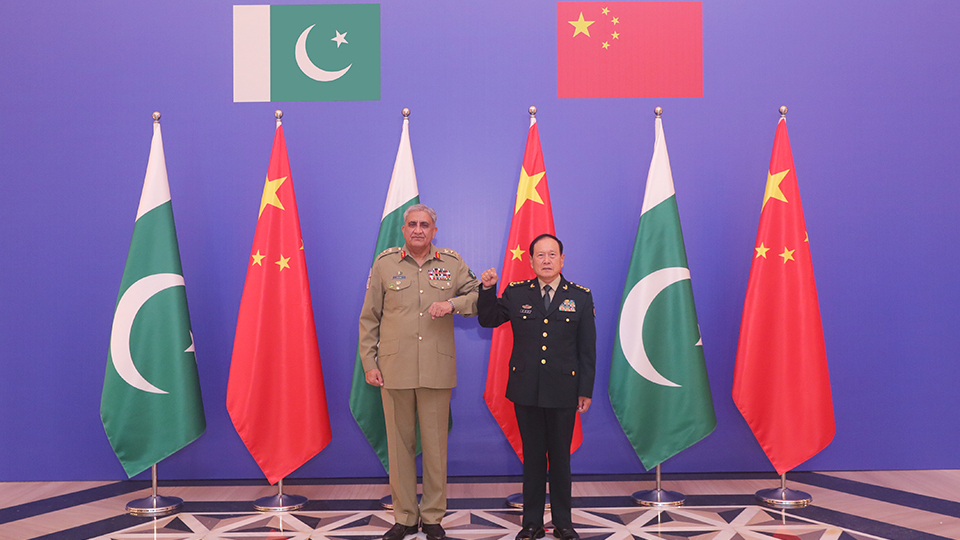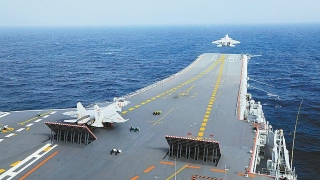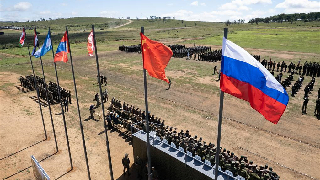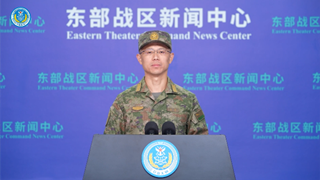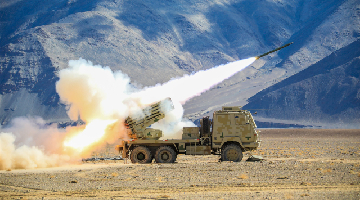By Zhang Jiadong
In the history of international politics, the domination of a few countries over world politics is often transient and unsustainable. In terms of the West as a whole, it has dominated the world for more than 500 years, a rather long time in human history. In terms of sovereign states like Spain, the Netherlands, the UK and the US, the US has dominated world politics for nearly 100 years, the second longest after the old British Empire.
The challenge to America’s domination in the 20th century and the first decade of the 21st century comes from within the West, which in the broad sense includes the Soviet Union, Germany, and Japan. During the Cold War, the West was split into two blocs, one headed by the Soviet Union and the other by the US, while countries like China and India belonged to the Third World whose relation with both blocs was unstable. As America’s rival, the Soviet Union in a way consolidated the alliance between the US, Japan and Europe, which gave Germany and Japan strategic opportunities after WWII.
After the end of the Cold War, the world regained peace under American rule, but has also brought itself another crisis as, with the disappearance of a common threat, the global values were no longer able to resist the revolutionary pressure stemming from the adjustment of the international landscape. From the 80s to the 90s of the last century, Japan and European countries were on a constant rise while the US was on a relative decline. In 1995, Japan and Germany had a combined GDP larger than America’s. Under such circumstances, they were moving increasingly away from the US and dared to say “no” to it more often. When the financial crisis broke out in 2008, the West’s global position suffered a serious blow, and so did America’s leadership within the western hemisphere. In Asia, on the contrary, Southeast Asian countries, Japan, ROK and China were growing ever closer in economic and trade ties. In Europe, Germany and France had widening divergences on the Russian issue, with French President Macron claiming NATO is “brain dead”. America itself felt lost too, as people represented by former President Trump began to lose confidence and interest in maintaining American hegemony.
The world was displaying three major changes in this stage. First, the relationship between China and the US-led West began to change with China’s high-speed development, as the West, primarily the US, has found a new weighty imaginary enemy. Second, changes were brewing within the West. Japan and Germany began to go down in the 21st century. With a combined GDP of less than half of America’s around 2017, Japan and Germany no longer dared to say no to the US like in the 1990s. Third, the tension between Russia and the West aggravated, which this year evolved into the most serious military conflict on the European continent after WWII.
This has affected the US on different levels. Regarding the global order, the so-called challenge from China and Russia put an end to its assumption of having universal values. The US-led global system shriveled into the Western system, and Washington is no longer trying to establish a world order inclusive of China and Russia. In other words, America has retreated from its self-claimed position as a world leader to a Cold War-style position as leader of the Western hemisphere, with its strategic goals and the peace under American rule all contracting. On the regional level, China’s rapid development and rising position are hyped up by the US and other western countries as a “threat” in order to cement their alliance with Japan and ROK. In Europe, the challenge from Russia has given NATO a refreshed sense of existence. The persistent strategic divergences between Germany and France on the Russian issue are temporarily outweighed by their common wish to “protect Ukraine’s sovereignty and territorial integrity” and “safeguard the current international order”. The joining of Sweden and Finland has enhanced NATO’s geographical advantages.
If, as the extreme political elites in America imagine, the world can be redivided into two blocs – China and Russia VS the US, Japan and EU – following the Cold War model, that would be considered good news by Washington for America’s strategic position. Establishing political and military alliances and besieging and containing strategic rivals are what the US is good at. But China and Russia are not the Soviet Union, and China, in particular, is closely entwined with the international market and the Western system. America’s attempt to isolate China and marginalize it in the existing international system won’t succeed.
This means that the new alliance system that the US has in mind with China and Russia as the imaginary enemies is essentially a loose system of values rather than an all-around alliance system encompassing values as well as political, military and economic aspects like during the Cold War. Compared with the Cold War system, the new alliance system is different in the following ways. For one thing, the members of the alliance have misaligned goals in different areas. While the US-led allies have somewhat shared goals in values and the military field, they all aim for different things in other fields. For another, America’s leadership is unbalanced in different fields. Its military domination is most secure, but military forces play a much smaller role in the new strategic game than in the Cold War. In comparison, its leadership in other fields is generally weak, so much so that it has to make concessions to the allies from time to time.
In this complex game, Japan and Europe try to rely on the US as the main strategic backing to compete with China and Russia for domination in Europe and East Asia, but at the same time, those countries are demanding from the US more political power on the international stage. As a result, even if the US succeeds in strategically containing China and Russia and its alliance system is reaffirmed in the short term, it is unable to ever put Japan and Germany back in the cage again. At the moment, Germany, France and the US are all trying hard to pull India to their side, and European countries are acting more like China than the US regarding the economic and trade relations with Russia. This fully indicates that America’s new round of strategic attacks against Russia and China is precariously grounded, and this new alliance system would soon collapse once the members think they have achieved the short-term goals.
In short, the world has come onto the track of globalization and democratization of international relations. In this process, America’s dominant position should have been continuously deconstructed, but some unexpected events have given it a chance to re-rally the alliance and re-build its hegemony, but that has also given countries like Japan and Germany a chance to seek a “normal status” or strategic independence. It’s hard to say whether, after this round of gaming, the US will re-emerge as the world’s only superpower or continue to go down the hill, but the possibility for Japan and Germany to have more strategic independence will send new structural shocks across the international landscape and the post-WWII order, including within the Western bloc. That may either lead to new chaos or even warfare or offer a new opportunity for human society to go further toward multi-polarity.
(The author is a professor at the Center for American Studies, Fudan University)
Editor’s note: Originally published on huanqiu.com, this article is translated from Chinese into English and edited by the China Military Online. The information and opinions in this article do not necessarily reflect the views of eng.chinamil.com.cn.
